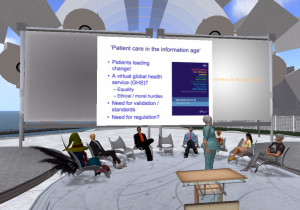May 27th, 2014 by Elma Jane
The BACPAC Act, which establishes a site-neutral bundled payment model for Medicare post-acute care (PAC) introduced earlier this week. According to a press release from the Partnership for Quality Home Healthcare, the proposed payment structure would have PAC coordinators and their networks of post-acute care providers manage patient care through a 90-day, site-neutral bundled payment that would be initiated upon a patient’s discharge from the hospital.
CEO for The Partnership for Quality Home Healthcare, said in the company statement that the proposed legislation offers pro-patient solutions that are founded on years of research and analyses. Additionally, those solutions support a more effective and efficient delivery of quality post-acute care services.
As population ages, the need for well managed post-acute care will become a pressing necessity for the sustainability of our healthcare system. The BACPAC Act of 2014 represents positive Medicare reform that benefits patients, providers and taxpayer alike.
One of the major changes that the bill hopes to make is to reduce hospital readmissions. As the Partnership for Quality Home Healthcare explained, readmissions are a common cost-driver in PAC. However, the proposed legislation creates strong incentive for patients to be placed in the most clinically-appropriate, cost-effective setting. From there, it is more likely that patients would receive more efficient care through their treatment plan.
The bill stemmed from the BACPAC analysis that was proposed by the Alliance for Home Health Quality and Innovation in January. The analysis, compiled and explained the benefits of bundled payment options for post-acute care, as well as how providers can control costs. If implemented correctly, bundling payments for chronic care management, rehabilitative and other forms of post-acute care could lead to more efficiency across care settings and encourage care coordination among providers. In the current fee-for-service system, care coordination is often overlooked, resulting in unnecessary tests, procedures and costs to the Medicare program that often do not improve patient care or outcomes. Medicare could see up to $100 billion in savings over 10 years by moving patients into different settings and reducing spending by certain degrees.
Posted in Medical Healthcare Tagged with: Alliance for Home Health Quality and Innovation, bundled payment, bundled payment options, care providers, chronic care management, costs, healthcare, Home Healthcare, Medicare, Medicare program, Medicare reform, networks, patient care, patient’s discharge, patients, payment, post-acute care, post-acute care services, procedures, provider's, Quality Home Healthcare, taxpayer, tests, treatment plan
November 12th, 2013 by Elma Jane
Since Medical Transcriptions is one of the product and services by National Transaction Corporation under National Transcription Corporation I just want to share this topic.
The abuse of the medical credit card system is growing by the day because many doctors are making these cards appear like an in-house payment program. Most patients are inclined to pay their doctor for their services directly, but they are more hesitant when a credit card is involved. Some medical professionals are masking the true source of their lending services and thus putting their clients at risk.
An example of this form of abuse can be seen by a company called CareCredit. Nearly 90% of New Yorkers in the CareCredit program opted for a program with no interest if the amount was paid in full. A quarter of them ended up paying 26.99% interest on their accounts instead. CareCredit has more than seven million cardholders nationwide, and it is currently the defendant in a variety of civil lawsuits.
If you are offered a chance to take to a credit card to cover your medical expenses, you should fully research the card before signing on the dotted line. Fully understand the terms of the card before agreeing to anything so you don’t end up in heavy debt.
Medical credit cards are designed to help people pay for procedures they may not be able to afford on their own. These cards give patients a chance to undergo the procedures their insurance may not pay for, as well as giving the doctor the opportunity to get their money right away.
While this may seem like a great setup, most patients are pressured into getting medical credit cards without knowing the excessive costs sometimes associated with them. They can fall into a debt trap very quickly.
Posted in Credit card Processing, Electronic Payments, Medical Healthcare Tagged with: amount, cards, clients, credit-card, debt, doctors, heavy debt, interest, lending, medical transcriptions, money, paid, patients, payment, procedures, professionals, risk, services, signing, system, terms

